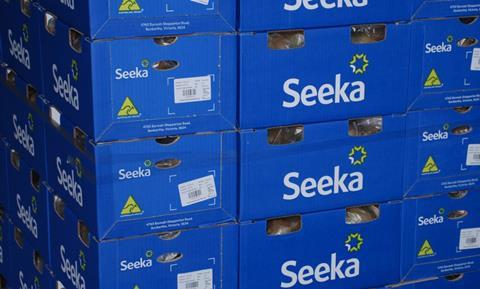Company expects full year earnings between NZ$21mn and NZ$25mn, up from a loss of NZ$21mn in 2023
New Zealand fruit grower-marketer, Seeka, has lifted its forecast full year earnings guidance to a record profit (before tax) of between NZ$21mn and NZ$25mn. This is up from a previous 2024 forecast of between NZ$17mn and NZ$21mn.

The forecast range compares to a loss of NZ$21mn over the 2023 financial year.
According to Seeka, the improved forecast reflects its clear strategy, excellent fruit quality and performance, and improved efficiencies and margins across the business.
Alongside the second guidance upgrade for the year, Seeka’s board has also declared a dividend of NZ$0.10 per share.
The full year dividend is normally paid in April. However, this year the full year dividend is set to be paid on 20 January 2025 to provide a quicker restoration of dividends and provide an earlier return on investment to Seeka’s shareholders.
Michael Franks, Seeka chief executive, said the company had achieved a good year. The guidance range indicated record operational earnings for Seeka, and key covenant ratios were well within their long-term range. While there is a drive to continue to reduce debt, he added, the company considered a distribution to shareholders appropriate.
When Seeka’s interim results were announced in August, Franks said strong kiwifruit seasons in New Zealand and Australia had contributed to the company’s strong results.
“Following two challenging seasons, kiwifruit volumes have rebounded with Seeka handling a record 43mn Class 1 trays for New Zealand growers. Fruit quality is excellent, and international market demand remains strong,” said Franks.
“Along with its post-harvest business, Seeka also grows and sells fruit in New Zealand and Australia. In New Zealand, our orcharding business grew 17mn trays, a 53 per cent increase on 2023, and production from our Australian kiwifruit orchards was up 164 per cent.”



